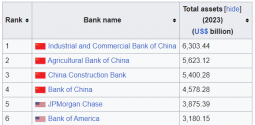This is a collection of incorporated entities in Beijing above 5mln RMB in sales - meaning if a restaurant Chain (say Haidilao) had multiple locations, it would be all rolled up in one entity.
Ok, so that likely means there is quite a significant share of the market not captured in those numbers.
And that really doesn't dispute much what I wrote though.
Now do total employment in Beijing.
And?
One likely would also need workforce age and movements, total Beijing population movement, and also workforce hukuo distribution though.
To get an actual deeper and meaningful analysis.
We are talking about nominal numbers - so while real retail sales growth (like yes you can buy more shoes per RMB) is higher, nominally it might be shrinking due to deflation. Yili (Milk) sales are -9% in 1H2024 (-16% in Q2 2024); Mengniu -6% in 1H2024. My premise is based on my argument that deflation is not good.
Your premise is shit.
Just like you write farther in your post, things are mixed.
And its the same for deflation!
Such as, companies reducing prices of their wares due to lower production prices (better production efficiencies or cheaper input materials) is likely in most circumstances a positive thing (a longer term possible negative, was if it say killed competition so that the company became like a monopoly).
And yes, there are also situations where deflation can have more negative over positive influence.
Fair points, my biggest point is that everyone here needs to recognize the "difficult years up ahead". As opposed to dispelling negative datapoints as FUD/Western Propaganda.
?
I don't think people have a problem with that.
But at the same time, people have confidence in the Chinese government still being a le to manage and control growth (we likely get that ~5% yearly for quite a while)
Yes there is a need to significantly ramp up childcare support, pension benefits, have the stock markets actually generate returns for the pension fund and the 700mln mutual fund investors in China, etc.
Yea, which is also something the Chinese central government has been saying.
It's a work in progress.
The point I'm making is that families/countries do not become prosperous by cutting costs - they become prosperous by making more money. Wealth generation is contingent on having good products and having people willing to pay high prices for said products.
View attachment 135228
Higher customer delight =/= you getting wealthier - it just means you are giving more value to customers as opposed to keeping what you have to yourself.
?
How are they not getting materially wealthier when they can buy more with what they earn?
If the lower costs was more temporary and resulted in the death of companies providing those cheaper stuff, then yes, there would be course of concern.
But we really aren't at the point (or enough data, not to mention we would need to drill deep in each sector) to draw conclusions.
And while profitability is one data point to look at, it's not enough (what is the actual profitability of the companies in the sector? Could it be like the NEV car sector, where BYD and CATL are massively profitable in selling batteries, while smaller and medium NEV car companies are taking losses? Etc.)

